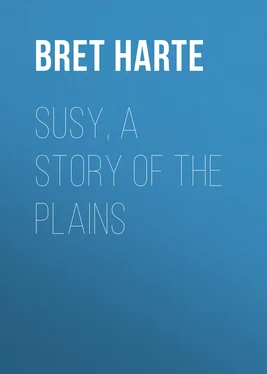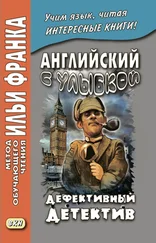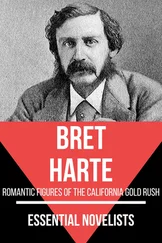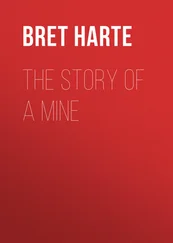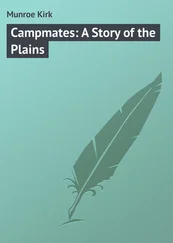Bret Harte - Susy, a Story of the Plains
Здесь есть возможность читать онлайн «Bret Harte - Susy, a Story of the Plains» — ознакомительный отрывок электронной книги совершенно бесплатно, а после прочтения отрывка купить полную версию. В некоторых случаях можно слушать аудио, скачать через торрент в формате fb2 и присутствует краткое содержание. Жанр: foreign_sf, literature_19, foreign_antique, foreign_prose, на английском языке. Описание произведения, (предисловие) а так же отзывы посетителей доступны на портале библиотеки ЛибКат.
- Название:Susy, a Story of the Plains
- Автор:
- Жанр:
- Год:неизвестен
- ISBN:нет данных
- Рейтинг книги:3 / 5. Голосов: 1
-
Избранное:Добавить в избранное
- Отзывы:
-
Ваша оценка:
- 60
- 1
- 2
- 3
- 4
- 5
Susy, a Story of the Plains: краткое содержание, описание и аннотация
Предлагаем к чтению аннотацию, описание, краткое содержание или предисловие (зависит от того, что написал сам автор книги «Susy, a Story of the Plains»). Если вы не нашли необходимую информацию о книге — напишите в комментариях, мы постараемся отыскать её.
Susy, a Story of the Plains — читать онлайн ознакомительный отрывок
Ниже представлен текст книги, разбитый по страницам. Система сохранения места последней прочитанной страницы, позволяет с удобством читать онлайн бесплатно книгу «Susy, a Story of the Plains», без необходимости каждый раз заново искать на чём Вы остановились. Поставьте закладку, и сможете в любой момент перейти на страницу, на которой закончили чтение.
Интервал:
Закладка:
Perhaps owing to the criticism of the farmer, perhaps from some still lurking suspicion of being overheard by eavesdroppers, or possibly from a humane desire to relieve the strained apprehension of the women, Red Jim, as the farmer disappeared to rejoin the stranger, again dropped into a lighter and gentler vein of reminiscence. He told them how, when a mere boy, he had been lost from an emigrant train in company with a little girl some years his junior. How, when they found themselves alone on the desolate plain, with the vanished train beyond their reach, he endeavored to keep the child from a knowledge of the real danger of their position, and to soothe and comfort her. How he carried her on his back, until, exhausted, he sank in a heap of sage-brush. How he was surrounded by Indians, who, however, never suspected his hiding-place; and how he remained motionless and breathless with the sleeping child for three hours, until they departed. How, at the last moment, he had perceived a train in the distance, and had staggered with her thither, although shot at and wounded by the trainmen in the belief that he was an Indian. How it was afterwards discovered that the child was the long-lost daughter of a millionaire; how he had resolutely refused any gratuity for saving her, and she was now a peerless young heiress, famous in California. Whether this lighter tone of narrative suited him better, or whether the active feminine sympathy of his auditors helped him along, certain it was that his story was more coherent and intelligible and his voice less hoarse and constrained than in his previous belligerent reminiscences; his expression changed, and even his features worked into something like gentler emotion. The bright eyes of Phoebe, fastened upon him, turned dim with a faint moisture, and her pale cheek took upon itself a little color. The mother, after interjecting “Du tell,” and “I wanter know,” remained open-mouthed, staring at her visitor. And in the silence that followed, a pleasant, but somewhat melancholy voice came from the open door.
“I beg your pardon, but I thought I couldn’t be mistaken. It IS my old friend, Jim Hooker!”
Everybody started. Red Jim stumbled to his feet with an inarticulate and hysteric exclamation. Yet the apparition that now stood in the doorway was far from being terrifying or discomposing. It was evidently the stranger,—a slender, elegantly-knit figure, whose upper lip was faintly shadowed by a soft, dark mustache indicating early manhood, and whose unstudied ease in his well-fitting garments bespoke the dweller of cities. Good-looking and well-dressed, without the consciousness of being either; self-possessed through easy circumstances, yet without self-assertion; courteous by nature and instinct as well as from an experience of granting favors, he might have been a welcome addition to even a more critical company. But Red Jim, hurriedly seizing his outstretched hand, instantly dragged him away from the doorway into the road and out of hearing of his audience.
“Did you hear what I was saying?” he asked hoarsely.
“Well, yes,—I think so,” returned the stranger, with a quiet smile.
“Ye ain’t goin’ back on me, Clarence, are ye,—ain’t goin’ to gimme away afore them, old pard, are ye?” said Jim, with a sudden change to almost pathetic pleading.
“No,” returned the stranger, smiling. “And certainly not before that interested young lady, Jim. But stop. Let me look at you.”
He held out both hands, took Jim’s, spread them apart for a moment with a boyish gesture, and, looking in his face, said half mischievously, half sadly, “Yes, it’s the same old Jim Hooker,—unchanged.”
“But YOU’RE changed,—reg’lar war paint, Big Injin style!” said Hooker, looking up at him with an awkward mingling of admiration and envy. “Heard you struck it rich with the old man, and was Mister Brant now!”
“Yes,” said Clarence gently, yet with a smile that had not only a tinge of weariness but even of sadness in it.
Unfortunately, the act, which was quite natural to Clarence’s sensitiveness, and indeed partly sprang from some concern in his old companion’s fortunes, translated itself by a very human process to Hooker’s consciousness as a piece of rank affectation. HE would have been exalted and exultant in Clarence’s place, consequently any other exhibition was only “airs.” Nevertheless, at the present moment Clarence was to be placated.
“You didn’t mind my telling that story about your savin’ Susy as my own, did ye?” he said, with a hasty glance over his shoulder. “I only did it to fool the old man and women-folks, and make talk. You won’t blow on me? Ye ain’t mad about it?”
It had crossed Clarence’s memory that when they were both younger Jim Hooker had once not only borrowed his story, but his name and personality as well. Yet in his loyalty to old memories there was mingled no resentment for past injury. “Of course not,” he said, with a smile that was, however, still thoughtful. “Why should I? Only I ought to tell you that Susy Peyton is living with her adopted parents not ten miles from here, and it might reach their ears. She’s quite a young lady now, and if I wouldn’t tell her story to strangers, I don’t think YOU ought to, Jim.”
He said this so pleasantly that even the skeptical Jim forgot what he believed were the “airs and graces” of self-abnegation, and said, “Let’s go inside, and I’ll introduce you,” and turned to the house. But Clarence Brant drew back. “I’m going on as soon as my horse is fed, for I’m on a visit to Peyton, and I intend to push as far as Santa Inez still to-night. I want to talk with you about yourself, Jim,” he added gently; “your prospects and your future. I heard,” he went on hesitatingly, “that you were—at work—in a restaurant in San Francisco. I’m glad to see that you are at least your own master here,”—he glanced at the wagon. “You are selling things, I suppose? For yourself, or another? Is that team yours? Come,” he added, still pleasantly, but in an older and graver voice, with perhaps the least touch of experienced authority, “be frank, Jim. Which is it? Never mind what things you’ve told IN THERE, tell ME the truth about yourself. Can I help you in any way? Believe me, I should like to. We have been old friends, whatever difference in our luck, I am yours still.”
Thus adjured, the redoubtable Jim, in a hoarse whisper, with a furtive eye on the house, admitted that he was traveling for an itinerant peddler, whom he expected to join later in the settlement; that he had his own methods of disposing of his wares, and (darkly) that his proprietor and the world generally had better not interfere with him; that (with a return to more confidential lightness) he had already “worked the Wild West Injin” business so successfully as to dispose of his wares, particularly in yonder house, and might do even more if not prematurely and wantonly “blown upon,” “gone back on,” or “given away.”
“But wouldn’t you like to settle down on some bit of land like this, and improve it for yourself?” said Clarence. “All these valley terraces are bound to rise in value, and meantime you would be independent. It could be managed, Jim. I think I could arrange it for you,” he went on, with a slight glow of youthful enthusiasm. “Write to me at Peyton’s ranch, and I’ll see you when I come back, and we’ll hunt up something for you together.” As Jim received the proposition with a kind of gloomy embarrassment, he added lightly, with a glance at the farmhouse, “It might be near HERE, you know; and you’d have pleasant neighbors, and even eager listeners to your old adventures.”
“You’d better come in a minit before you go,” said Jim, clumsily evading a direct reply. Clarence hesitated a moment, and then yielded. For an equal moment Jim Hooker was torn between secret jealousy of his old comrade’s graces and a desire to present them as familiar associations of his own. But his vanity was quickly appeased.
Читать дальшеИнтервал:
Закладка:
Похожие книги на «Susy, a Story of the Plains»
Представляем Вашему вниманию похожие книги на «Susy, a Story of the Plains» списком для выбора. Мы отобрали схожую по названию и смыслу литературу в надежде предоставить читателям больше вариантов отыскать новые, интересные, ещё непрочитанные произведения.
Обсуждение, отзывы о книге «Susy, a Story of the Plains» и просто собственные мнения читателей. Оставьте ваши комментарии, напишите, что Вы думаете о произведении, его смысле или главных героях. Укажите что конкретно понравилось, а что нет, и почему Вы так считаете.
